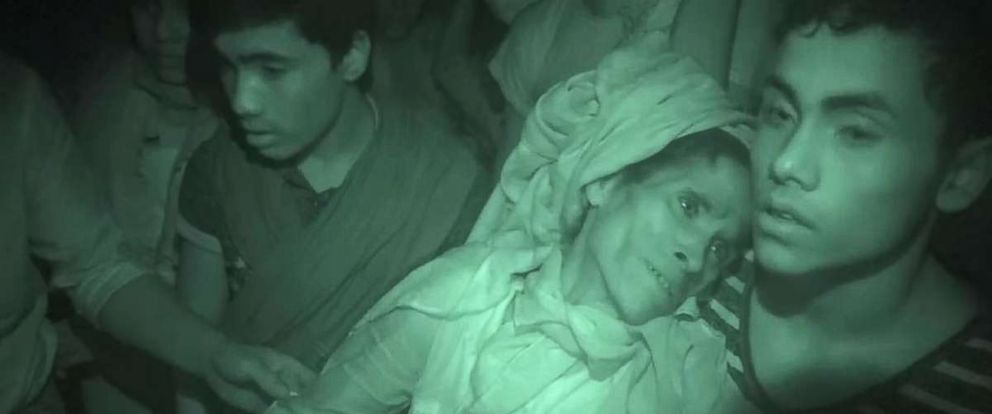Desperate conditions for thousands of Rohingya in Myanmar captured on night-vision video
WATCH Desperate conditions for thousands of Rohingya in Myanmar forced to flee captured on night-vision video
The original version of this story appeared on Sky News.
We have witnessed scenes of shocking deprivation and desperation among thousands of stranded Rohingya Muslims in Myanmar, including emaciated women and newborn babies who have been dumped on beaches and left to die.
Sky News has managed to film the first independent evidence from Rakhine State — the center of Myanmar's brutal crackdown against the Rohingya.
It shows a truly alarming humanitarian crisis of huge proportions is taking place right here, right now, as you are reading this.
And there is little intervention by the international community to halt it.
It also defies the claim by the Myanmar authorities that its army is simply enforcing security to curb terrorist activity.
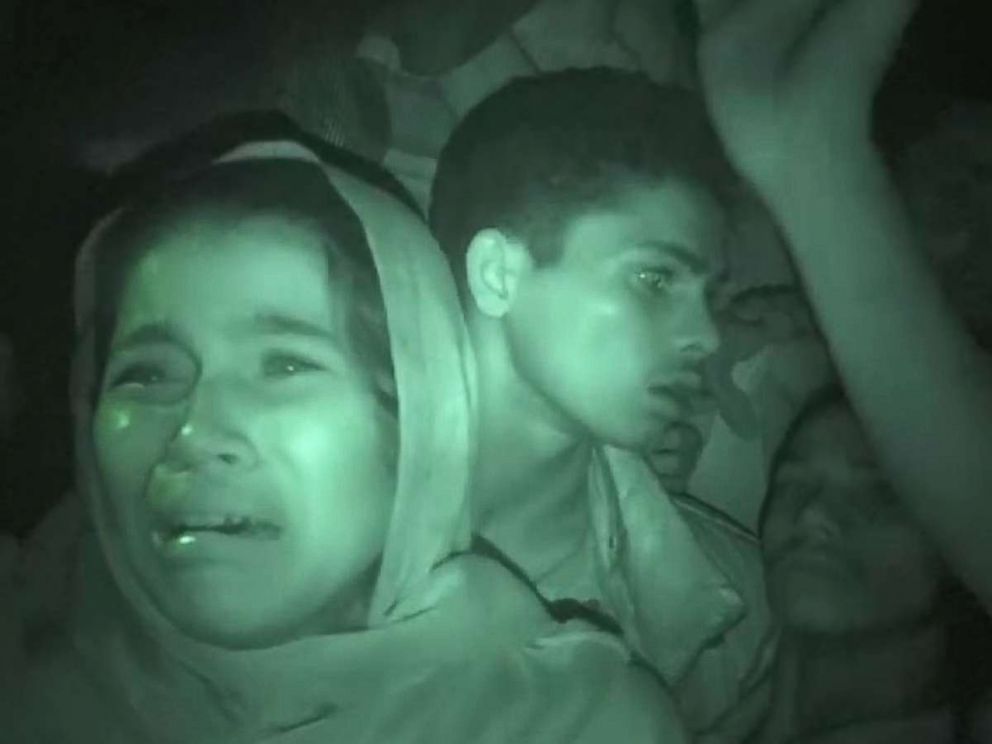 SkyNews
SkyNewsWe traveled by fishing boat in the middle of the night via a circuitous route from south Bangladesh to Myanmar. We are keeping the journey details secret to avoid the route being closed down by either the Bangladeshi or Myanmar authorities.
When we landed at Dang Khali Saur in Maungdaw district, there were crowds of people already in the shallows crying out for help. An elderly, severely malnourished woman was among the first we saw.
Her arms and legs were so shrunken from lack of food, she could barely stand. As she fell forward, I reached out to help steady her and found I could put my fingers around her upper arm, she was so thin.
Rohingya Crisis: Tales of abuse, attacks and hunger No place to call home for Rohingya, facing abuse and attacks
We saw rows of babies who had been born on the beach.
One was delivered the day before we arrived, and still had her umbilical cord attached. Another had a swollen, distended stomach from lack of food.
The crowds told us over and over again how the Myanmar military had driven them here, burning their homes and forcing them to flee.
"They are slaughtering us, destroying our houses and raping our women," one young man told us.
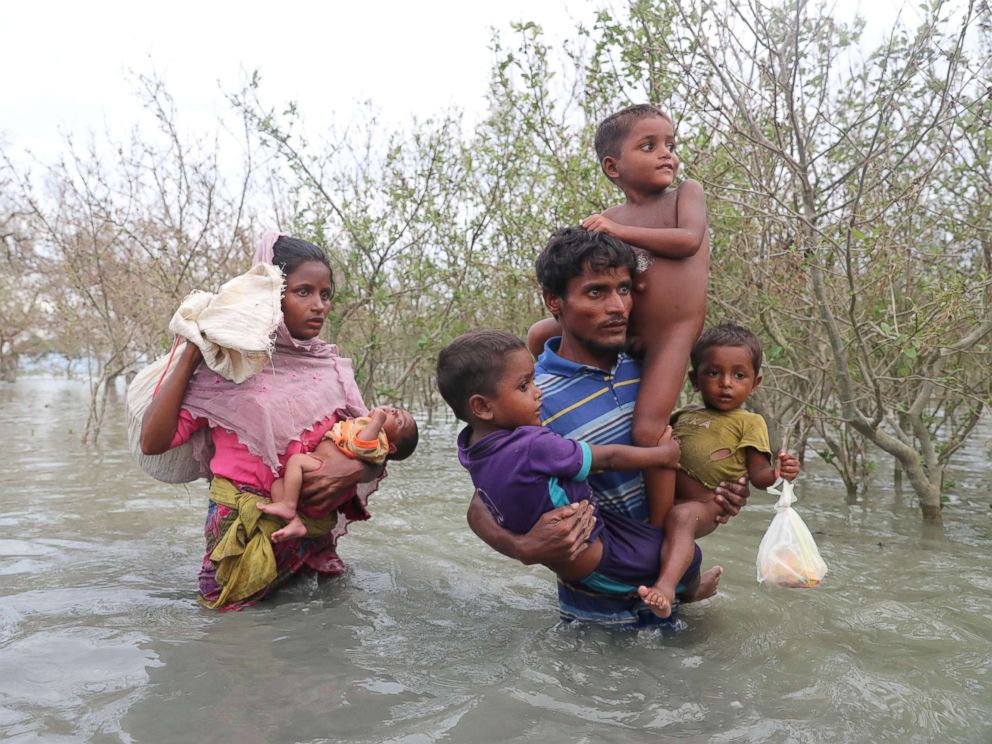 Mohammad Ponir Hossain/Reuters
Mohammad Ponir Hossain/ReutersThey spoke about being trapped on the beach, some for as long as two months.
The military, they say, has laid mines beyond the beach preventing any of them going back into Myanmar. So here they are: stranded on sand waiting for help, which never seems to arrive.
Occasionally, desperate relatives in Bangladesh arrange for boats to sail over and pick groups up.
But the journey is long and dangerous in the middle of the night. Most fishermen won't risk losing their livelihoods and possibly going to jail or being arrested by the much-feared Myanmar military.
So they're just not waiting. We saw scores of young men busily trying to build their own raft out of bits of bamboo, string and discarded jerry cans.
The structure was about 40 square feet. They had taken five days to build it and expected to finish it in another five days.
The structure will be packed with families, some with very young children and babies. Balancing on top of this flimsy, homemade raft, they will try to reach Bangladesh by paddling their way there. It is sheer desperation.
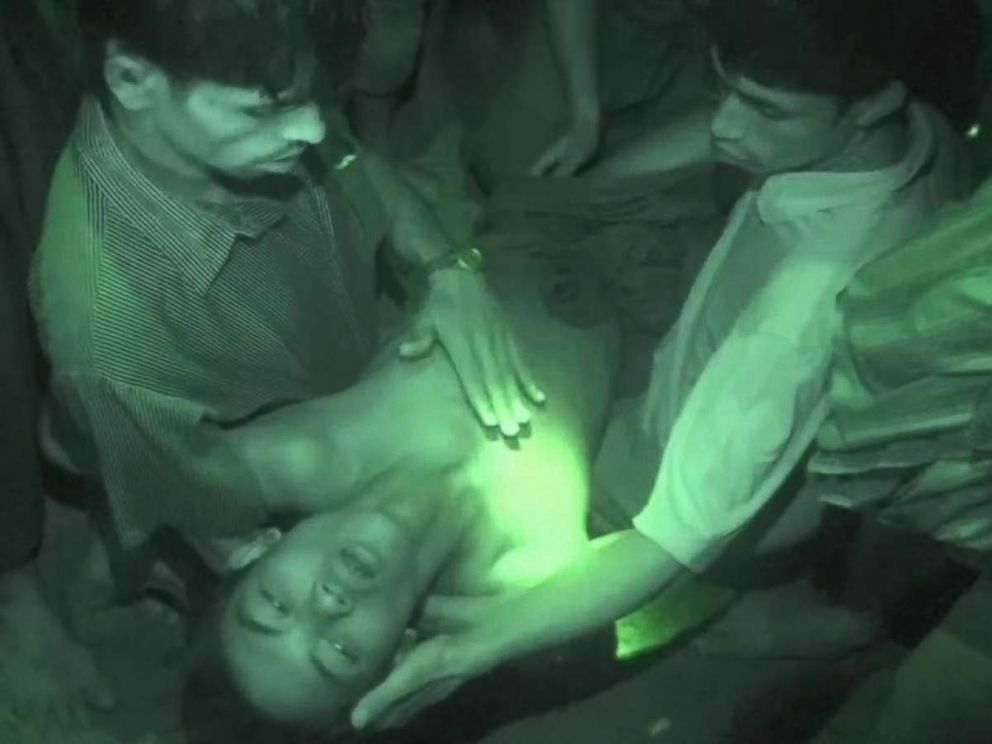 SkyNews
SkyNewsIt is difficult to imagine what further evidence the outside world needs to be convinced of the barbarity of what is going on in Myanmar.
Already an estimated 600,000 people have streamed over land to Bangladesh.
They are now living in squalor there, with soaring malnutrition and disease rates.
The miserable, trapped Rohingya families we saw in Rakhine State are those unable to make the trek by land because they are in the worst affected area. It is furthest away from the land border and there are dozens of Myanmar military checkpoints blocking their path.
One of the fishing crew has to shout and beat back those we're leaving behind on the beach to stop them stampeding the boat and making it capsize. It is a heartbreaking scene.
"Take us, take us," some beg.
Their hands are outstretched, imploring. I notice one man holding up his toddler. Another thrusts his baby at me and forces his son's tiny, shrunken leg into my hand to ensure I feel how skinny and frail he is.
The boat's captain ushers us to the boat. He's anxious to leave before the Myanmar military, who are camped close by, are alerted to our presence.
Our group chaotically clambers onto the boat.
It has been anchored some distance from the shore to try to prevent a sudden rush of desperate people.
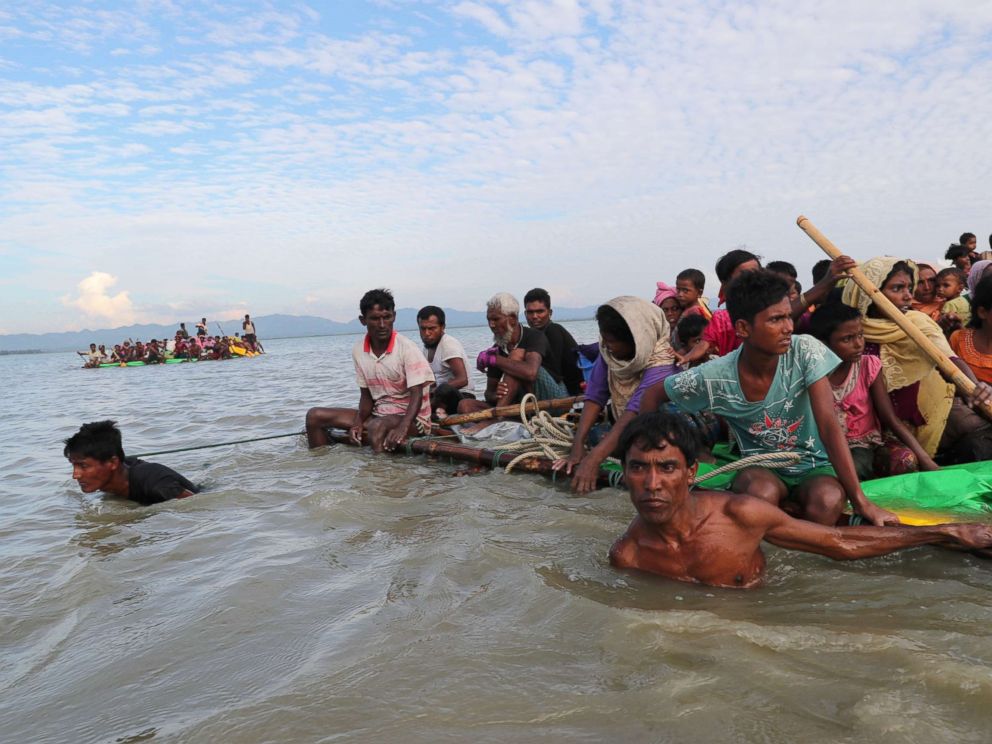 Mohammad Ponir Hossain/Reuters
Mohammad Ponir Hossain/ReutersConsequently, the passengers are waist-high in seawater trying to climb aboard and waves smash against them and threaten to knock them over.
The captain had told us he had space for about 15 people. In the end, about 30 adults, children and babies are on board, squashed together taking up every available space.
The gaunt, elderly woman we first met on arrival has been laid on the small shelf of wood against the bow. She is curled up, lying on her back.
The crew hands out biscuits and water, and everyone hungrily devours them.
This is the first nourishment many have had in days. The old woman beckons to me to give her some water and pulls herself up to take some.
She tries to take just one gulp and finds she can't swallow. This is what happens with severe deprivation.
A couple of hours later and we can see the lights of Bangladesh.
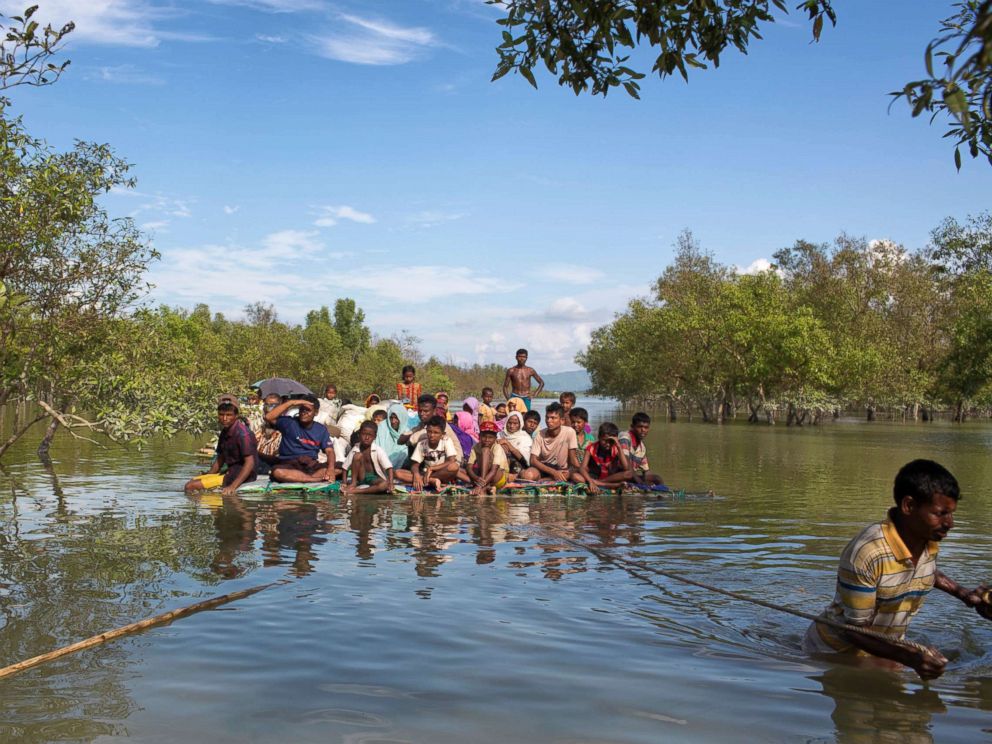 A.M. Ahad/AP
A.M. Ahad/APThe captain anchors some way off shore and urges his passengers to leave the boat quickly.
He does not want to be arrested by the Bangladeshi Border Guards, who have been destroying fishing boats when they catch them with refugees on board.
Within a few minutes, everyone has scrambled off the boat and headed for the trees fringing the beach.
The elderly woman collapses in the water but is scooped up and helped by one of the young men and escorted to the shoreline.
They pause in a rice field for a brief rest.
"We feel like we have been born again," one family tells us. But their faces and demeanor are still very subdued, almost dazed with trauma.
They gather up the bundles of belongings that they've managed to carry with them and head off into the darkness and the unknown.
They have their lives, but precious little else.
- Star
Add Interests Customize your news feed by choosing the topics that interest you.
To save your interests across all devices Log In or Sign Up »Source – abcnews.go.com
